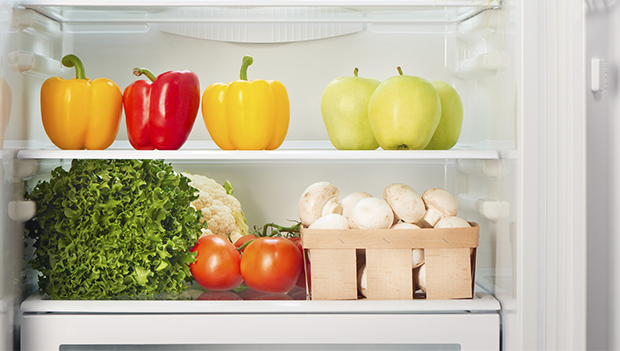
Have you ever heard the saying “one bad apple spoils the whole bunch?” We’ve all probably seen instances where this happens with people, but it actually happens to fruit as well. Storing those bananas in the fruit-bowl with the apples might be making your bananas ripen too quickly.
“You mean some fruits and veggies just don’t get along when it comes to ripening?”
YES.
Properly storing fruits and veggies isn’t all that straightforward. Some fruits and vegetables emit ethylene - an invisible, odorless and generally harmless hormone - that is a ripening agent among other things. Other fruits are very sensitive to this ripening agent. Bananas, for example, are ethylene-emitters. Peaches are ethylene-sensitive. So if you store a peach in a paper bag with a ripe banana, the peach will ripen faster. Avocados, plums and nectarines are all ethylene-emitters and will ripen in a paper bag more quickly because the gas is unable to escape.
The riper a piece of fruit becomes, the more ethylene it produces. Overripe fruit gives off more ethylene, eventually leading to a concentration of gas that has enough power to over-ripen all of your fruit in a fruit-bowl. One bad apple really does have the ability to spoil the whole bunch. So, while those bananas look beautiful in your fruit bowl, its best to keep them elsewhere. Separate your gas-releasing produce from your gas-sensitive produce.
That said, refrigerating some gas-releasing produce will help them stay fresher longer because cold temperatures will slow the release of gas. Don’t trap the gas that is emitted in a plastic bag (because this will, again, speed ripening) but do keep them in the cold. Here’s a quick guide to which fruits and veggies to store where:
Refrigerate These Gas Releasers:
- Apples
- Apricots
- Cantaloupe
- Figs
- Honeydew
Don't Refrigerate These Gas Releasers:
- Avocados
- Bananas, unripe
- Nectarines
- Peaches
- Pears
- Plums
- Tomatoes
Keep These Away From All Gas Releasers:
- Bananas, ripe
- Broccoli
- Brussels sprouts
- Cabbage
- Carrots
- Cauliflower
- Cucumbers
- Eggplant
- Lettuce and other leafy greens
- Parsley
- Peas
- Peppers
- Squash
- Sweet potatoes
- Watermelon
 Find healthy recipes.
Find healthy recipes.



